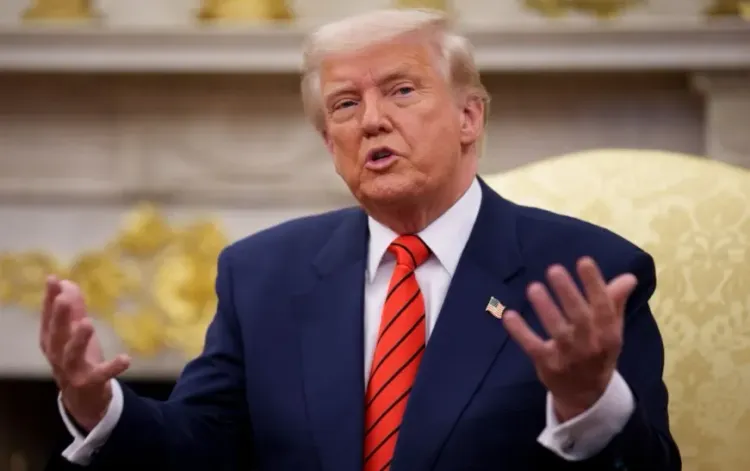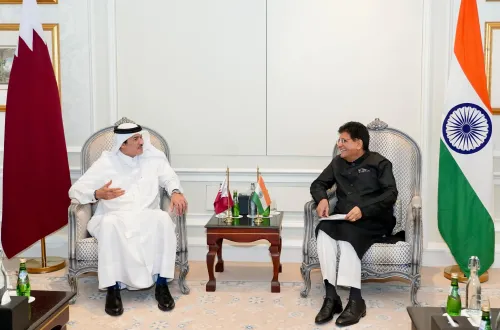Is the Movie Industry at Risk? Trump Enforces 100% Tariff on Foreign Films

Synopsis
Key Takeaways
- 100% Tariff: A significant measure imposed by Trump on foreign films.
- National Security: Concerns raised about the decline of the American film industry.
- Hollywood Challenges: Economic setbacks from strikes and the pandemic.
- Special Ambassadors: Appointed to enhance business opportunities in Hollywood.
- Future Vision: A push for revitalizing the American film industry.
Washington, May 5 (NationPress) - On Monday (Indian time), US President Donald Trump declared a groundbreaking 100% tariff on films produced outside the United States, asserting that the American film industry is "dying a very fast death," which he claims poses a national security threat.
He accused foreign nations of providing various incentives that lure filmmakers and studios away from the US.
"The industry in America is dying rapidly. Other countries are offering numerous movie incentives to attract our filmmakers and studios away from the United States. Hollywood, along with many regions in the USA, is suffering tremendously. This is a coordinated effort by other nations and represents a national security threat," he stated on his social media platform, Truth Social.
"In addition to everything else, it is also about messaging and propaganda! Therefore, I am empowering the Department of Commerce and the United States Trade Representative to promptly initiate the process of enforcing a 100% tariff on any and all movies entering our country that are produced abroad. We want films made in America again," he continued.
During a press briefing at the White House on Sunday, Trump attributed the decline in film production in Hollywood over recent years to California Governor Gavin Newsom.
He claimed that other countries have been "stealing" the movies and filmmaking talent from the United States.
"If they are unwilling to produce a film within the United States, we should impose a tariff on incoming films," Trump asserted.
Reports indicate that film production has diminished in California due to budget cuts and more lucrative tax incentives offered elsewhere. Moreover, the American film industry has faced various economic challenges in recent years, such as Hollywood labor strikes and the impacts of the Covid pandemic.
Earlier this year, Trump appointed three film icons—Jon Voight, Mel Gibson, and Sylvester Stallone—as special ambassadors to promote business prospects in Hollywood, labeling the industry as a "great yet troubled place."
Trump emphasized that their mission is to revitalize Hollywood, which has lost significant business to foreign competitors over the past four years.
"They will act as special envoys to me to restore Hollywood, which has lost substantial business to foreign countries, and make it bigger, better, and stronger than ever before!" Trump stated during that announcement.









